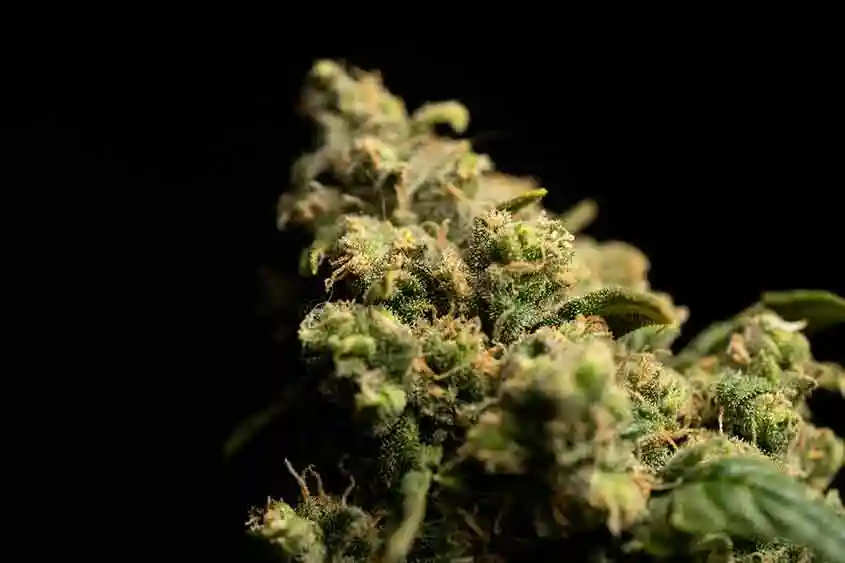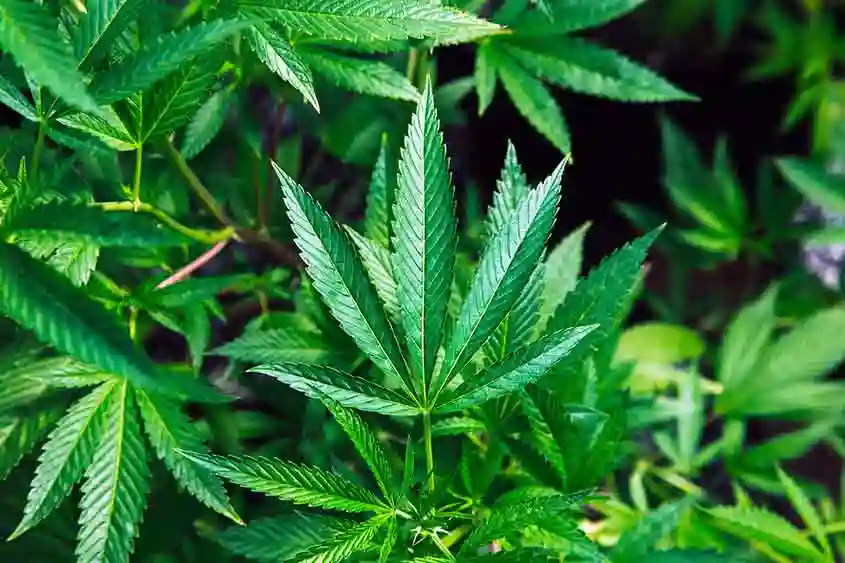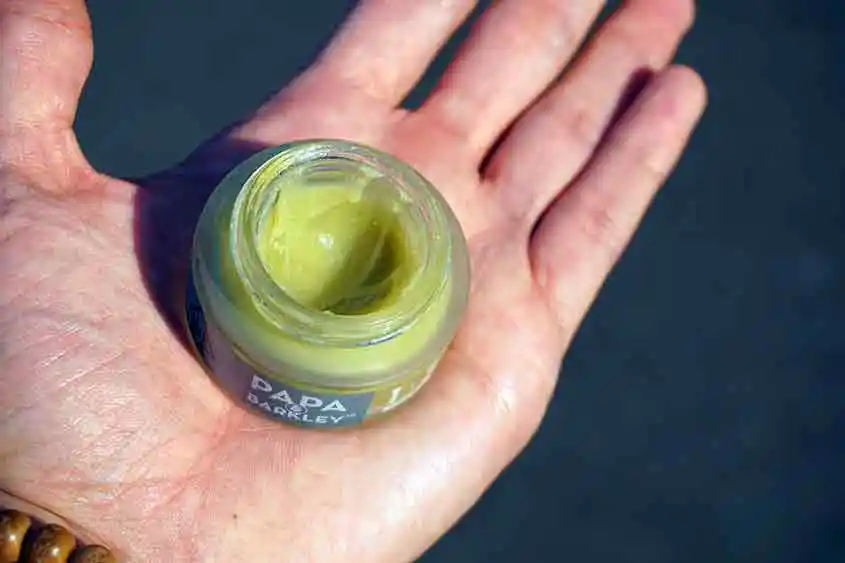With the recent wave of legalization of medical marijuana across the United States, terms like THC have become increasingly prevalent in public discourse. Today, we’ll delve into the two most common types of THC—Delta-8 THC and Delta-9 THC—exploring their key differences, why they matter, and the recommended dosages for each. Let’s get started!
What is Delta-8 THC?
Delta-8 THC (tetrahydrocannabinol) is a psychoactive substance derived from the cannabis plant. Both cannabis and hemp are types of marijuana plants, and Delta-8 THC is one of over 100 cannabinoids that these plants naturally produce. However, Delta-8 THC is not present in substantial amounts; it’s considered a minor cannabinoid, which means that extracting it requires significant effort and specialized processes.
Chemical Composition and Effects
Delta-8 THC has a slightly different chemical structure compared to its more famous cousin, Delta-9 THC. This subtle difference gives Delta-8 THC a lower psychotropic potency. Users often report that Delta-8 THC provides a milder high, which is less intense and more manageable, making it appealing for those who seek the benefits of THC without the extreme psychoactive effects.
Legal Status
The legal status of Delta-8 THC varies widely across the United States. Some states have embraced its legality, especially due to the 2018 Farm Bill, which legalized hemp-derived cannabinoids. However, other states have moved to restrict or ban Delta-8 THC due to concerns about its psychoactive properties and the lack of regulatory oversight.
What is Delta-9 THC?
Delta-9 THC is the primary psychoactive component of the marijuana plant. It’s the compound most people refer to when they talk about THC. Delta-9 THC is present in much larger quantities compared to Delta-8 THC, making its extraction and production more straightforward and less costly.

Chemical Composition and Effects
Delta-9 THC has a chemical structure that is almost identical to Delta-8 THC, with just a slight difference that makes a significant impact. Delta-9 THC binds more readily to the CB1 receptors in the brain, which leads to its higher potency and the characteristic ‘high’ associated with marijuana use. This compound is known for its strong psychoactive effects, which can include euphoria, altered sensory perception, and relaxation, but also potential anxiety and paranoia in higher doses.
Legal Status
The legal landscape for Delta-9 THC is complex and varies by state. While some states have legalized marijuana for medical and recreational use, others strictly prohibit any form of THC. This variation in legality influences availability, research, and consumer access across the country.
Key Differences: Delta-8 THC vs. Delta-9 THC
While Delta-8 THC and Delta-9 THC are chemically similar, their differences are noteworthy. The primary distinctions lie in their potency, effects, and legal status.

Potency and Effects
Delta-9 THC is significantly more potent than Delta-8 THC. Users of Delta-9 THC often experience a strong psychoactive effect, which can be overwhelming for some. In contrast, Delta-8 THC is known for providing a more subdued high, which is often described as clear-headed and less likely to induce anxiety or paranoia.
Legal Considerations
The legality of these cannabinoids differs significantly. Delta-8 THC, derived from hemp, falls into a legal gray area due to the 2018 Farm Bill, which legalized hemp and its derivatives. However, some states have imposed bans or restrictions on Delta-8 THC. Delta-9 THC, on the other hand, is more strictly regulated and is illegal under federal law, although many states have enacted laws permitting its use under certain conditions.
Delta-8 THC vs. Delta-9 THC Dosing
Regardless of whether you choose Delta-8 THC or Delta-9 THC, starting with a low dose and gradually increasing it as per your tolerance is crucial. This approach helps prevent chronic side effects and unpleasant symptoms.

Recommended Dosage
For Delta-8 THC, the recommended dosage typically ranges between 10mg and 60mg. Due to its lower potency, users can consume higher doses compared to Delta-9 THC without experiencing overwhelming effects. Conversely, Delta-9 THC’s recommended dosage is lower, typically between 5mg and 30mg, reflecting its higher potency.
Individual Variation
It’s essential to recognize that every individual’s body reacts differently to THC consumption. Factors such as body weight, metabolism, and prior experience with cannabinoids can influence how one responds to these substances. To avoid adverse effects, it is advisable to consult a medical professional who can recommend a safe dosage tailored to your specific needs and health profile, especially if you are taking any ongoing medications.
Safety and Consumption
Understanding Tolerance
Building a tolerance to THC, whether Delta-8 or Delta-9, can occur with regular use. Tolerance means that over time, higher doses are required to achieve the same effects. This can lead to increased consumption, which might elevate the risk of adverse effects. Monitoring and adjusting your intake based on tolerance is important to maintain a balanced and safe consumption pattern.
Side Effects
Both Delta-8 and Delta-9 THC can cause side effects, especially if consumed in high doses. Common side effects include dry mouth, red eyes, and changes in appetite. More severe reactions might include anxiety, paranoia, dizziness, and impaired motor skills. Understanding and recognizing these side effects can help users take precautionary measures to mitigate them.
Quality and Purity
With the growing market for THC products, ensuring the quality and purity of what you consume is critical. Contaminants and impurities can lead to health risks. It’s advisable to purchase products from reputable sources that provide third-party lab testing results. These results can confirm the cannabinoid content and the absence of harmful substances.
3. Alternative to Smoking
For individuals who prefer not to smoke or vape cannabis, beverages offer a convenient and discreet alternative. Enjoying a cannabis-infused drink eliminates the potential risks associated with inhaling smoke or vapor, making it a safer option for those concerned about lung health. It also appeals to new users or individuals exploring cannabis for the first time.
Potential Benefits and Uses

Medical Applications
Both Delta-8 and Delta-9 THC have potential therapeutic benefits. They have been studied for their ability to alleviate symptoms such as pain, nausea, and appetite loss. Delta-9 THC is widely used in medical marijuana treatments for conditions like chronic pain, glaucoma, and multiple sclerosis. Delta-8 THC, with its milder effects, is being explored for its potential to reduce anxiety and provide neuroprotective benefits.
Recreational Use
For recreational users, the choice between Delta-8 and Delta-9 THC often comes down to the desired experience. Delta-9 THC is preferred for a stronger, more intense high, while Delta-8 THC is favored for a more relaxed, less anxious experience. Understanding the different effects can help users select the product that best fits their recreational goals.
Regulatory Landscape
State Laws
State laws regarding Delta-8 and Delta-9 THC vary widely, creating a complex regulatory landscape. Some states have fully embraced the legalization of both cannabinoids, while others have imposed strict regulations or outright bans. Understanding the specific laws in your state is crucial for legal compliance and safe consumption.
Federal Regulations
At the federal level, the distinction between Delta-8 and Delta-9 THC hinges largely on their source. Delta-9 THC, derived from marijuana, remains a Schedule I controlled substance under federal law, which classifies it as having a high potential for abuse and no accepted medical use. Conversely, Delta-8 THC, if derived from hemp, is in a legal gray area following the 2018 Farm Bill, which legalized hemp and its derivatives. However, the DEA has suggested that synthetically derived Delta-8 THC might also fall under the controlled substances category, further complicating its legal status.
The Future of THC Products
Innovation and Market Trends
The cannabis industry is rapidly evolving, with new products and innovations emerging regularly. This includes a range of THC-infused products such as edibles, tinctures, and vapes. Both Delta-8 and Delta-9 THC products are becoming more sophisticated, with improved methods of extraction and purification that enhance safety and efficacy. As consumer interest grows, the market is likely to see continued diversification and refinement of THC products.
Research and Development
Ongoing research into the effects and benefits of cannabinoids is crucial for the development of safe and effective products. Increased funding and interest in cannabis research are paving the way for a better understanding of how Delta-8 and Delta-9 THC interact with the body and their potential therapeutic uses. Future studies may uncover new applications and more precise dosing guidelines, contributing to the broader acceptance and use of these compounds.
Methods of Consumption: Delta-8 THC and Delta-9 THC H2
Understanding the various methods of consuming Delta-8 and Delta-9 THC can help users choose the best approach for their needs and lifestyle. Here, we’ll explore the most common consumption methods, their benefits, and considerations.
Smoking and Vaping
- Smoking
Smoking is one of the traditional methods of consuming THC. It involves inhaling the smoke from burning cannabis flowers or concentrates. This method allows for a rapid onset of effects, typically within minutes, which can be beneficial for users seeking immediate relief or a quick onset of psychoactive effects.
Benefits: Fast-acting, Easy to control dosage
Considerations: Potential respiratory issues, Strong odor
- Vaping
Vaping involves inhaling vaporized cannabis oil or concentrate using a vaporizer or vape pen. This method is similar to smoking in terms of rapid onset but is often considered less harmful to the lungs since it does not involve combustion.
Benefits: The quick onset of effects, Discreet and less odor compared to smoking
Considerations: Requires additional equipment (vape pen, cartridges), The quality of vape products varies

Edibles
Edibles are food products infused with THC, such as gummies, chocolates, or baked goods. They offer a smoke-free alternative and can be a more enjoyable way to consume THC.
- Benefits: Long-lasting effects, Discreet consumption, Variety of flavors and forms
- Considerations: Delayed onset (30 minutes to 2 hours) Difficult to control dosage, Risk of overconsumption
Tinctures and Oils
Tinctures are liquid extracts that are typically administered under the tongue (sublingually). This method allows for relatively quick absorption into the bloodstream, usually within 15-45 minutes.
- Benefits: Quick onset compared to edibles, Easy to control and measure dosage, Versatile usage (can be added to food or drinks)
- Considerations: The taste may be unpleasant for some users, Requires careful dosing
Topicals
Topicals are THC-infused creams, balms, and lotions applied directly to the skin. They are primarily used for localized relief from pain, inflammation, and skin conditions.
- Benefits: Non-psychoactive (does not cause a high), Targeted relief for specific areas
- Considerations: Limited to topical benefits, May require frequent reapplication
Capsules and Pills
Capsules and pills contain THC oil or powder and offer a familiar and straightforward method of consumption, similar to taking other supplements or medications.
- Benefits: Precise dosing, Discreet and easy to consume
- Considerations: Delayed onset (similar to edibles), Effects may last longer
Conclusion
Delta-8 THC and Delta-9 THC, while similar, have distinct differences that impact their effects, legality, and usage. Delta-8 THC offers a milder, less intense high, making it suitable for those who prefer a more manageable psychoactive experience. Delta-9 THC, known for its potent effects, remains the more popular and widely recognized cannabinoid but comes with stricter legal restrictions and the potential for stronger side effects.
Understanding these differences is crucial for making informed decisions about THC consumption. Whether for medical or recreational purposes, starting with a low dose and consulting with a medical professional can help ensure a safe and enjoyable experience. As the legal and scientific landscapes continue to evolve, staying informed about new developments and regulations will be key to navigating the world of THC products.
By considering your individual needs, preferences, and the legal framework in your state, you can make a more educated choice between Delta-8 and Delta-9 THC, maximizing the benefits while minimizing the risks.
Consult a healthcare professional before using cannabis products; the advice provided is not a substitute for medical guidance.

